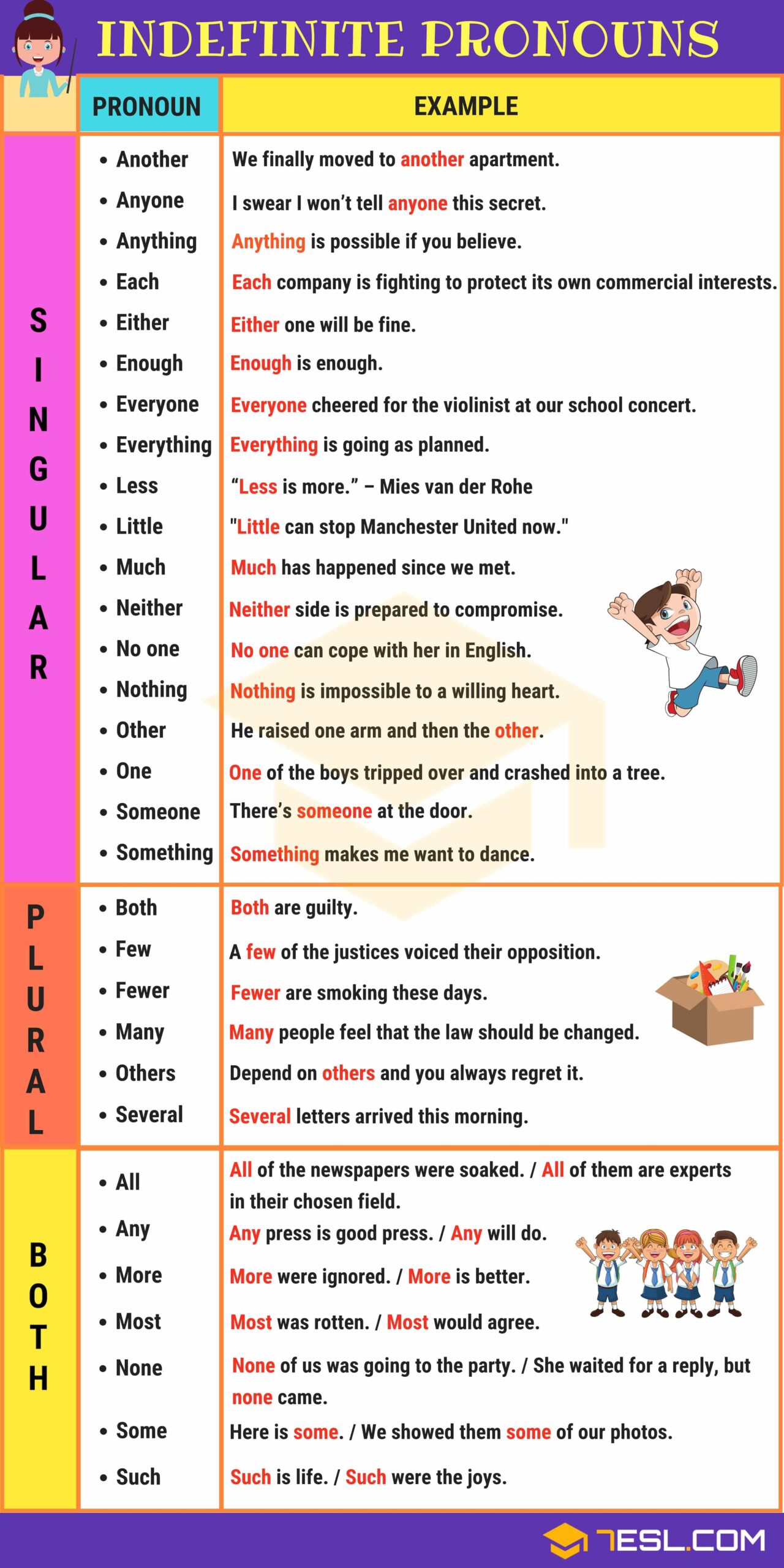Pronouns are words that take the place of nouns in a sentence. They are essential in making sentences flow more smoothly and avoiding the repetition of nouns. There are different types of pronouns, each serving a specific purpose in a sentence. Let’s explore some examples of pronouns and how they are used.
1. Personal Pronouns:
Personal pronouns refer to specific persons or things. They can be singular or plural, and can also indicate gender. Examples of personal pronouns include: I, you, he, she, it, we, they. For instance, “She is going to the store.” In this sentence, “she” is a personal pronoun replacing a specific person.
2. Demonstrative Pronouns:
Demonstrative pronouns are used to point to specific things or people. Examples of demonstrative pronouns include: this, that, these, those. For example, “This is my new book.” Here, “this” is a demonstrative pronoun indicating a specific object.
3. Relative Pronouns:
Relative pronouns are used to link phrases or clauses together. Examples of relative pronouns include: who, whom, whose, which, that. For instance, “The woman who lives next door is a doctor.” In this sentence, “who” is a relative pronoun connecting the two phrases.
4. Possessive Pronouns:
Possessive pronouns show ownership or possession. Examples of possessive pronouns include: mine, yours, his, hers, ours, theirs. For example, “The car is mine.” Here, “mine” is a possessive pronoun indicating ownership.
5. Reflexive Pronouns:
Reflexive pronouns are used when the subject and object of a sentence refer to the same person or thing. Examples of reflexive pronouns include: myself, yourself, himself, herself, itself, ourselves, themselves. For instance, “He hurt himself.” In this sentence, “himself” is a reflexive pronoun reflecting back to the subject.
In conclusion, pronouns play a crucial role in sentence construction by replacing nouns and making communication more efficient. By using different types of pronouns such as personal, demonstrative, relative, possessive, and reflexive pronouns, writers and speakers can convey their messages clearly and effectively. Understanding the various examples of pronouns can help improve your writing and communication skills.
